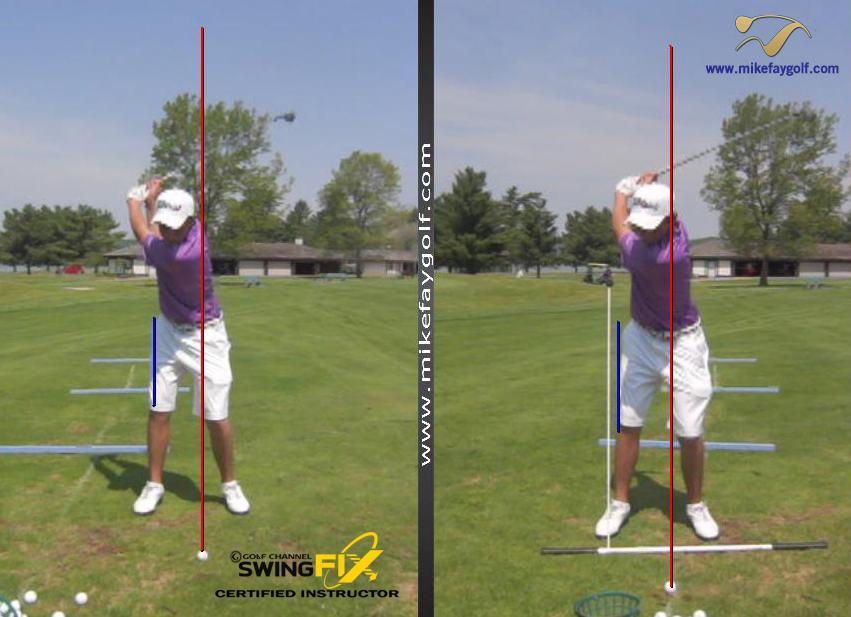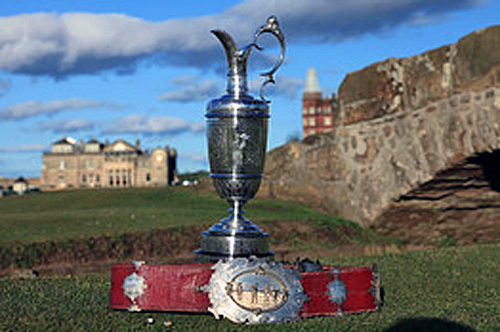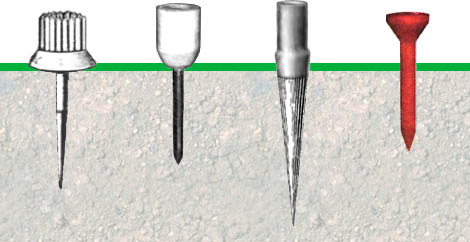The History Of The Golf Tee The history of the golf tee dates back to the 1500's. The practice of getting sand wet with a towel and mounding up earth to get the ball off the ground a little went on for some 300 years. The late 1800's changed all that. This is the...
Dustin Johnson Victorious Despite Rules Controversy

Rule 34-2 Referee’s Decision states: “If a referee has been appointed by the Committee, his decision is final”, whether or not the decision is correct. Sounds cut and dried. But that is not necessarily correct. The Committee reserves the right to review all infractions. In this case they did just that, they reviewed Johnson’s actions on video tape and they felt his actions may have caused the ball to move. By the time they called in the head Rules Official and the referee that made the call, Johnson was on the eleventh hole. A USGA Official met Johnson on the 12th tee and apprised him of the situation. They also notified the rest of the field.
Rule 34-3 Committee’s Decision, does not prevent a Committee from changing a ruling (See Decision 34-3/1). Based on the evidence furnished, the referee determined that Johnson did not cause the ball to move and he instructed Johnson to play the ball as it lies without penalty. After a player plays, the Committee can assess the the same evidence or additional evidence. In Johnson’s case, the Committee reviewed the tapes of his actions and determined that he had caused the ball to move. He was assessed a one stroke penalty on the completion of his round.
Under Rule 34-3, a Committee’s decision is final. The Rule does not prevent a Committee from correcting an incorrect ruling and imposing or rescinding a penalty provided that no penalty is imposed or rescinded after the competition is closed, except in circumstances set forth in Rule 34-1b.
Frank Guastella, PGA Rules Official Michigan Section PGA
Staff Writer, Mike Fay Golf
If you have a question for Frank here’s where you can contact him.
Email: [email protected]
To “follow” Frank on Twitter click here
To “like” Frank on Facebook click here
Where Does The Term Birdie Come From?
Where Does The Term Birdie Come From?
We all love making birdies. Who doesn’t right? But did you know the origin of the term? Well, in golf history standards the term birdie isn’t that old at all.
Atlantic City Country Club in 1903 and the story goes something like this. Brothers Ab and William P. Smith where playing a round of golf with George A Crump, who later went on to build Pine Valley. They where playing the par 4 2nd hole at the country club. Ab Smith’s second shot went within inches of the hole and he proclaimed, “That was a bird of a shot.” He proclaimed that with a score of one under par he should be paid double for such a feat. It was agreed upon and from that day forward we call that a “birdie”.
To see all the featured articles of Backspin-The History of the Game please click here.
Thank you for reading and please leave your comments below.
Sources: www.scottishgolfhistory.org, USGA Golf Museum

Mike Fay
PGA Director of Instruction
With over 30 years of teaching experience, it's easy to see why Mike has become a leader in the world of golf instruction. Everything from cutting edge social networking techniques to having his own podcast, Mike has helped to change the face of teaching golf. He currently is the Director of Instruction at Walnut Creek Country Club in South Lyon, Michigan.
Email: [email protected]
Backspin Archives
The History Of The Golf Tee
The Claret Jug
The Claret Jug The first British Open was contested in 1860 at Prestwick Golf Club and stayed there for some 11 years. Originally the winner of the British Open received something called the “Challenge Belt.” The Challenge Belt was created by the Earl of Eglinton. ...
TEAM MFG BLOG
Subscribe
Never miss a new post, article, or video!
Subscribe to our newsletter Chip Shots!
Staying Centered
Staying Centered

Staying centered is very important to your golf swing. Moving too much laterally can cause a multitude of problems. First off, moving your swing center causes the bottom of your swing to be too far behind or in front of the ball. I usually see two major faults that cause this to happen.
The first fault is ball position. For example, if the ball position is too far behind where it should be, the player usually moves the upper body too far over the rear foot in an attempt to get behind the ball. At times this causes the lead arm to run into the chest too soon and the lead elbow to bend. A major power leak which can lead to casting the club.
The second major fault I often see is the lateral motion of the hips. The hips should turn and not slide on the backswing. Sliding can cause many problems with weight shift. It’s nearly impossible to get back to a proper impact position. Most times it causes poor contact.
So stay centered and keep your hips and head between the lines!
Please comment below!

Mike Fay
PGA Director of Instruction
With over 30 years of teaching experience, it's easy to see why Mike has become a leader in the world of golf instruction. Everything from cutting edge social networking techniques to having his own podcast, Mike has helped to change the face of teaching golf. He currently is the Director of Instruction at Walnut Creek Country Club in South Lyon, Michigan.
Email: [email protected]
The Claret Jug
The Claret Jug

The first British Open was contested in 1860 at Prestwick Golf Club and stayed there for some 11 years. Originally the winner of the British Open received something called the “Challenge Belt.” The Challenge Belt was created by the Earl of Eglinton. It was made of rich morocco leather and garnished with a silver buckle and many emblems. The first Challenge Belt was purchased by the Prestwick Golf Club.
In the Spring of 1871, Prestwick held a meeting and decided to open the championship to the involvement of other clubs. With no event held that year, the next decisions where made in September of 1872 when it was decided to have Prestwick, the Honourable Company of Edinburgh Golfers and The Royal and Ancient Golf Club team together to find a solution. These 3 clubs joined together to create new awards. The winner of the event would receive the “The Golf Champion Trophy” commonly known today as the Claret Jug. The belt was no more thanks to Tom Morris Jr.
In 1920 the three clubs decided to hand over the trophy responsibility to the Royal and Ancient Golf Club. After Bobby Jones’ victory in 1927 came more changes. Prior to that time, winners could take the trophy for themselves. The R & A GC decided to retain the trophy and a replica was made for the winner. Although 4 other replicas were made over the years for display purposes, winners have been getting replicas ever since.
That brings us to this year’s British Open to be held at Royal Lytham and St. Annes. The last time the event was held there was in 2001 when David Duval was the victor.
For more information on the qualifiers, players and the road leading up to the British Open.
Photo courtesy of AP, James Hardie/Hulton Archive/Getty Images

Mike Fay
PGA Director of Instruction
With over 30 years of teaching experience, it's easy to see why Mike has become a leader in the world of golf instruction. Everything from cutting edge social networking techniques to having his own podcast, Mike has helped to change the face of teaching golf. He currently is the Director of Instruction at Walnut Creek Country Club in South Lyon, Michigan.
Email: [email protected]
Backspin Archives
The History Of The Golf Tee
The History Of The Golf Tee The history of the golf tee dates back to the 1500's. The practice of getting sand wet with a towel and mounding up earth to get the ball off the ground a little went on for some 300 years. The late 1800's changed all that. This is the...
The Claret Jug
The Claret Jug The first British Open was contested in 1860 at Prestwick Golf Club and stayed there for some 11 years. Originally the winner of the British Open received something called the “Challenge Belt.” The Challenge Belt was created by the Earl of Eglinton. ...
TEAM MFG BLOG
Subscribe
Never miss a new post, article, or video!
Subscribe to our newsletter Chip Shots!




